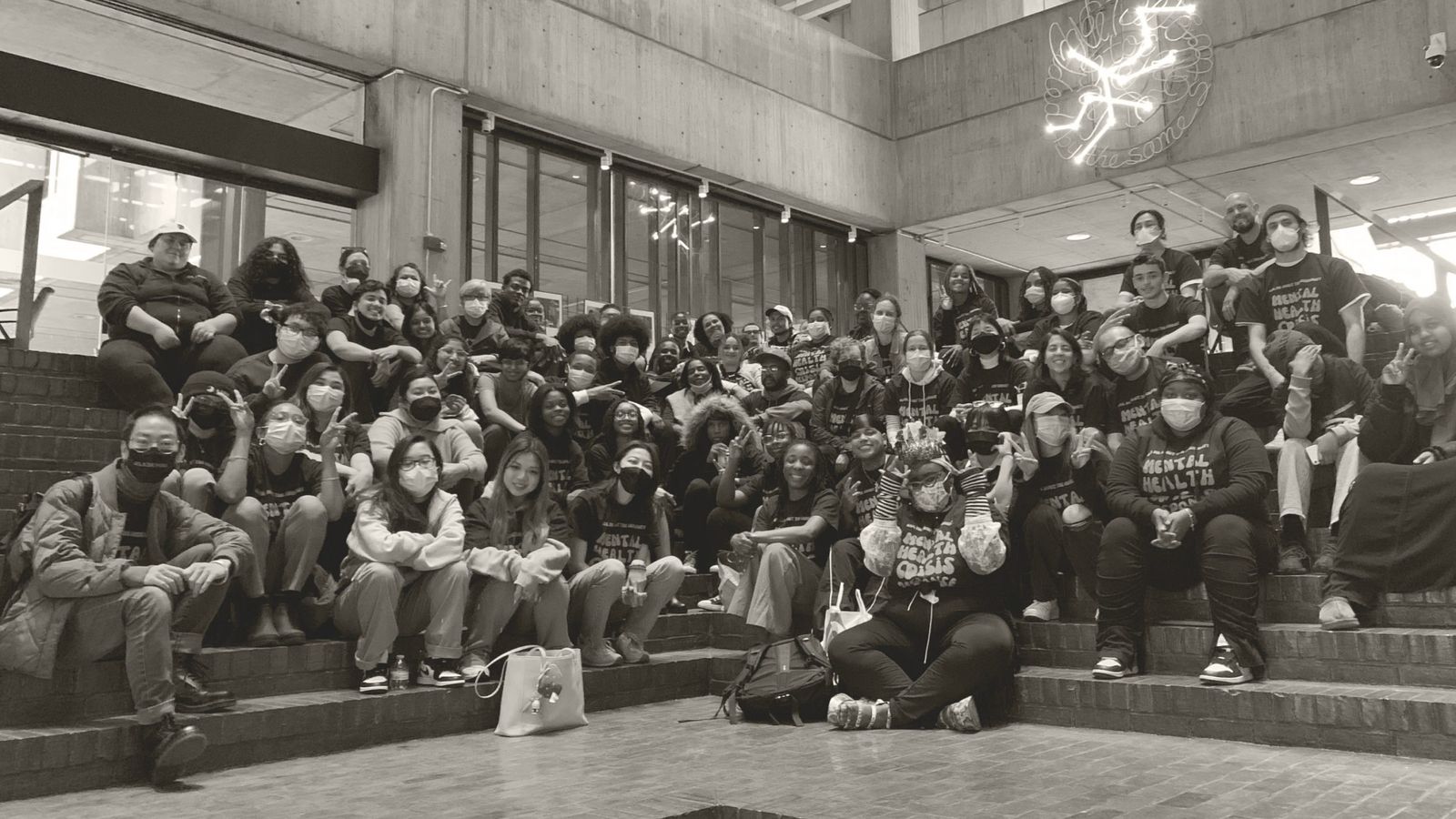Inquest: BUSSW Alum Chronicles Campaign for Non-Police Mental Health Crisis Response in Boston

In an article published in Inquest, BU School of Social Work (BUSSW) alum Emy Takinami (MSW’20) and Husain Rizvi share the backstory of an evolving campaign to establish community-based mental health crisis response in Boston, led by the Boston Liberation Health (BLH) Group and The City School.
Excerpted from “A Safer, Healthier Boston” (Inquest):
 In 2020, people across the country took to the streets in response to the police murders of George Floyd, Ahmaud Arbery, Tony McDade, and Breonna Taylor. The concept of abolition moved to the mainstream thanks to the work of organizers who had been laying the groundwork long before 2020, but saw this moment as a unique window of opportunity to seize the public discourse. In Boston, people joined in these national mass actions, calling for defunding the Boston Police Department and reinvesting that money in communities. Led by the Defund BosCops Coalition and other local Black organizers, community members demanded funding for youth jobs, affordable housing, and participatory budgeting as part of an abolitionist vision and future for our city.
In 2020, people across the country took to the streets in response to the police murders of George Floyd, Ahmaud Arbery, Tony McDade, and Breonna Taylor. The concept of abolition moved to the mainstream thanks to the work of organizers who had been laying the groundwork long before 2020, but saw this moment as a unique window of opportunity to seize the public discourse. In Boston, people joined in these national mass actions, calling for defunding the Boston Police Department and reinvesting that money in communities. Led by the Defund BosCops Coalition and other local Black organizers, community members demanded funding for youth jobs, affordable housing, and participatory budgeting as part of an abolitionist vision and future for our city.
Part of that vision was for the creation and funding of a non-police, community-based mental health crisis response. According to sources collected by our partners at Interrupting Criminalization in a 2021 report, since 2015, more than 6,000 people have been killed by the police, and of those 6,000, almost one in four were people who were, or were perceived to be, experiencing a mental health crisis. They also report that a person with unmet mental health needs is sixteen times more likely to be killed by the police. In 2023, there were at least three police killings in the Boston area, at least two of which involved the person experiencing a mental health crisis.
On June 16, 2023, following years of organizing, Boston city leaders had an opportunity to bring a small piece of our abolitionist horizon to life here in our city, but Mayor Michelle Wu vetoed a city council’s budget proposal to invest in a pilot for a non-police, community-based mental health crisis response that was designed by community—which emerged from an initial request for proposals that came from the city itself.”
Takinami and Rizvi were involved in the effort through their roles with BLH and The City School which were selected by the City of Boston to facilitate the design process for a community-based mental health crisis response model.
Three BUSSW faculty members were also a part of the effort: BLH cofounder Dawn Belkin Martinez, a clinical associate professor and associate dean of equity and inclusion, and lecturers Chloe Frankel and Maya Milic-Strkalj who both serve on the BLH steering committee.
Emy Takinami (SSW’20) is the racial justice policy and community engagement manager at the FXB Center for Health and Human Rights at Harvard University and a steering committee member of the Boston Liberation Health (BLH) Group. A macro social worker and community organizer, she previously served as director of policy and community organizing at Zero Debt Massachusetts and was a Rappaport Public Policy Fellow at the Harvard Kennedy School. She graduated from BUSSW’s Master of Social Work program with a major in Macro Social Work Practice.
Husain Rizvi is a program director at The City School, a youth racial and social justice leadership development organization in Boston.
You can learn more about their campaign for a non-police, community-based mental health crisis response program here or by watching their BUSSW Equity & Inclusion Speaker Series presentation below.